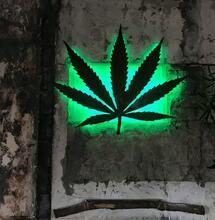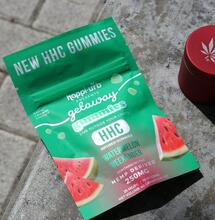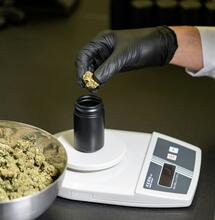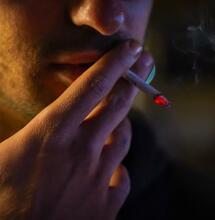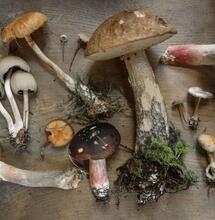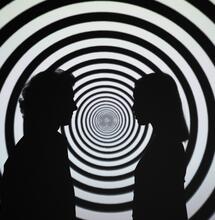Seattle is the New Capital City of Psychedelics
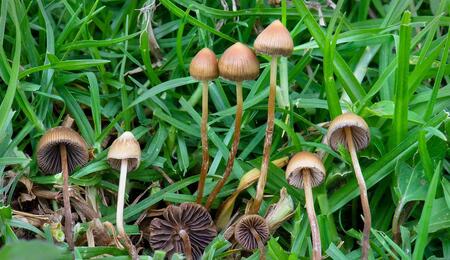
Check back if there's a growing number of people reporting the Space Needle wobbles later this month. Consumption and non-commercial cultivation of psychedelic mushrooms is officially permitted in Seattle. It's now the largest city in the U.S. to have decriminalized hallucinogenic mushrooms and to join the so-called "shroom boom." The landmark decision was passed by a unanimous vote.
Seattle's City Council passed a resolution on Monday (Oct 4) that decriminalizes the growing and sharing of various psychedelic substances such as psilocybin mushrooms, ayahuasca, ibogaine, and non-peyote-derived mescaline.
The historic decision of the City Council expands the city's policy not to arrest or criminally charge an individual for personal possession of drugs. Civilian freedoms now encompass small-scale farming and sharing of psychedelic plants and fungi for "religious, spiritual, healing, or personal growth practices."
The adopted measure states that those engaging in "entheogen-related activities should be among The City of Seattle's lowest enforcement priorities." The legislation instructs Seattle's police department to take all needed steps to follow the directive. The legislation further states the council will work "to determine what changes would be necessary to protect from arrest or prosecution individuals who cultivate entheogens." For now, the resolution is not an ordinance, however, the council intends to institute the change through an ordinance.
Councilmember Andrew Lewis, who introduced the resolution, said before the vote: "These nonaddictive natural substances have real potential in clinical and therapeutic settings to make a really significant difference in people's lives."
He added: "This resolution really sets the stage as the first significant action in the state of Washington to move this policy forward."
A press release issued from the councilman's office said, "Entheogens, commonly known psychedelics, have been shown to benefit the well-being of individuals suffering from depression, severe anxiety, problematic substance use, post-traumatic stress, end-of-life anxiety, grief, and intergenerational trauma. These and other physical and mental conditions are plaguing many communities, which have been further demonstrated to be exacerbated by the impact of COVID-19."
Lewis said in his remarks: "It is a long overdue conversation to decriminalize these non-addictive natural substances. Our law enforcement officials certainly have more important things to do than arrest people for possession of entheogens, and this resolution affirms that."
A number of U.S. jurisdictions already have decriminalized some or all entheogens, including Oakland and Santa Cruz in California; Denver, Colorado; Ann Arbor, Michigan; Washington, D.C., and the State of Oregon. Seattle joins as the most populous city to decriminalize hallucinogenic shrooms.
Around the world, Portugal, Jamaica, Brazil, and the Netherlands have similar regulations in place.

Magic mushrooms are consumed way less often compared to cannabis. In the U.S., the incidence of a person reporting having tried mescaline or peyote over a survey is only about 0.1 percent of respondents. Figures from 2010 suggest that approximately 21 million Americans had reported trying magic mushrooms at least once, which is at least five times less than the estimated number of Americans who have tried marijuana at least once.
Magic mushrooms or psilocybin mushrooms refer to any fungi that contain psilocin and psilocybin. As indole hallucinogens with a slightly different chemical structure, psilocin and psilocybin affect the brain tissue and actions of serotonin, generating hallucinations and an altered state of consciousness.
"Shrooms" are native to much of South and Central America. Psilocybe semilanceata, a type of psilocybin mushroom nicknamed Liberty Cap, is one of the most common psilocybin mushrooms found in nature. It's also one of the most potent. Another potent and famous mind-altering type is Psilocybe cubensis. Colloquially known as "gold caps" and "halos," these and similar types of shrooms have been around for millennia. Scientific evidence shows hallucinogenic fungi helped ancient cave artists create prehistoric art. Catholic missionaries during the Spanish conquest imposed bans on the use of hallucinogenics in America, however, indigenous communities in Mexico continued to use them for various ceremonies.
While the modern psychedelic drug market is just taking off, some estimate it will hit over $10 billion value by 2027. Its principal purpose is to help distribute new medicinal products for severe mental health conditions or help terminally ill patients.
